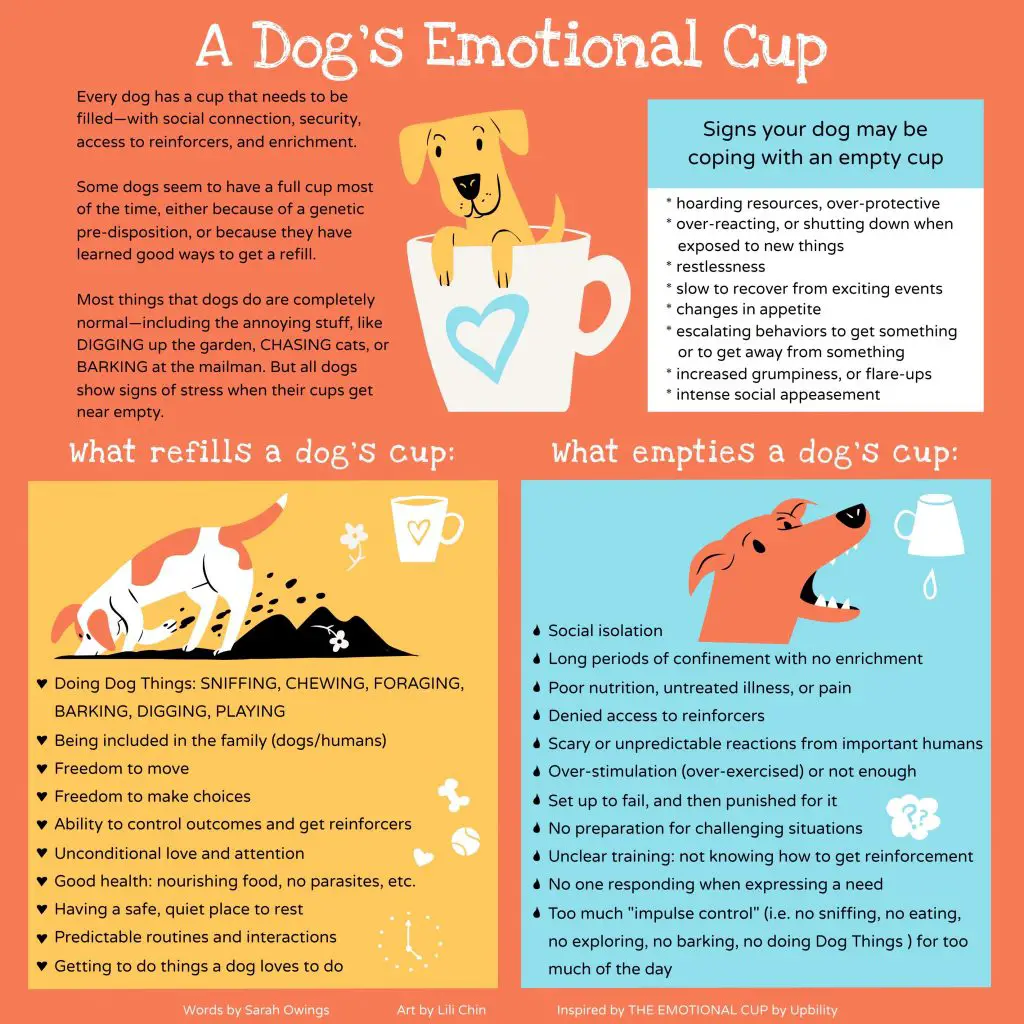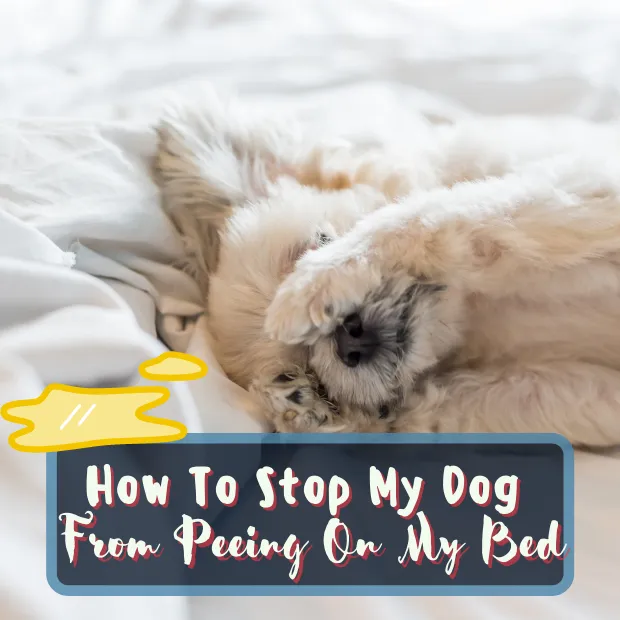It’s 3 a.m. and you’re awoken by the sound of your dog peeing on your bed. Again. If this sounds all too familiar and if you’re wondering “How do I stop my dog from peeing on my bed?”, you’re not alone.
Many dog owners struggle with their pet’s inappropriate urination habits, which can be frustrating and costly. But don’t worry, there are ways to curb this behavior.
In this blog post, we’ll discuss some tips to help stop your dog from peeing on your bed. Stay tuned!
Table of Contents
ToggleContents of this article:
- Why does my dog pee on my bed?
- Why dogs might pee on the bed.
- How to resolve the problem.
- How to stop your dog from peeing on the bed.
Why does my dog pee on my bed?
Many dog owners have experienced the frustration of coming home to find their pet has urinated on their bed. While this behavior may seem inexplicable, there are actually a number of reasons why dogs may decide to relieve themselves indoors.
Regardless of the reason, it’s important to remain calm and take steps to redirect your dog’s behavior positively. With patience and perseverance, you can teach your furry friend to make only appropriate use of the great outdoors.
Why dogs might pee on the bed.
Let’s explore the potential causes why your dog has peed on your bed.
Medical issues.
Why do dogs pee on the bed? It’s a question that has puzzled dog owners for generations. There are a number of possible explanations, one of which could be that your dog is experiencing a medical issue.
Dogs with Urinary Tract Infections (UTIs) often feel an urgency to relieve themselves, even if they’ve just been outside. If your dog is peeing on the bed, it’s important to take them to the vet so that they can be treated.
Other potential causes of bed-wetting include diabetes, kidney disease, and incontinence.
If your dog is dry during the day but wet at night, it’s possible that they’re simply not getting enough water during the day.
Make sure that you’re providing plenty of fresh water for your dog to drink, and if the problem persists, please consult your veterinarian.
Housetraining problems.
It’s also possible that your dog simply doesn’t understand that urinating inside is not allowed. If you’ve recently adopted a new dog, he may need some time to adjust to his new home and learn the rules.
Take some time to review your training methods and make sure you are consistently providing clear instructions, with close supervision when indoors, lots of opportunities to toilet in the correct place and plenty of positive reinforcement.
With a little effort, you can help your dog overcome their house training issues and enjoy a happy, healthy life together.
Emotional reasons.
One common explanation is the possibility is that your dog is excited, fearful, anxious or stressed. Dogs are capable of experiencing a range of emotions, from joy and love to fear and anxiety. When a dog pees on the bed, it is often due to one of these four emotions.
Dogs may become so excited when their owners come home or when they are about to go for a walk that they simply can’t help but relieve themselves.
Fear can also cause a dog to pee on the bed. If a dog is afraid of loud noises or feels threatened by anything, he may urinate in an attempt to mark his territory and make himself feel more secure.
Stress and anxiety can also lead to this behavior. Dogs can develop strong attachments to their owners, and separation can be very stressful. Some dogs may urinate out of fear or insecurity, hoping to create a familiar scent in their owner’s absence.
Dogs may start to pee on the bed if they are feeling overwhelmed by changes in their routine or environment.
Whatever the reason, it is important to consult with a veterinarian or animal behaviorist to find out how to best address the issue.
How to resolve the problem.
Accidents happen, even with the best of dogs. House training issues are not uncommon, and sometimes a dog will have an accident even if you’ve been working diligently on their training.
If your dog has peed on the bed, there are a few things you can do to clean it up and help prevent future accidents.
Properly clean-up all accidents.
Be sure to thoroughly clean the area where the accident occurred with an enzyme-based cleaner. This will help to remove any lingering urine odor that could trigger another accident.
Rule out any medical causes.
If your dog has been house-trained but suddenly starts urinating on the bed, it’s important to rule out any potential medical causes. Urinary tract infections, diabetes, and kidney disease can all lead to this behavior.
If you suspect your dog may have a medical condition, please consult your veterinarian.
Address any gaps in housetraining.
Go back to basics and make sure that your dog understands the rules. If you’ve recently adopted a new dog, they may need some time to adjust to their new environment and learn the rules.
Take them outside on a schedule, supervise them when they are indoors, give them plenty of opportunities to eliminate in the correct place, and use food rewards for getting it right.
Consider crate training.
If your dog is having accidents in the house, crate training may be a helpful solution. Crate training can help to confine your dog to a small space when you are not able to supervise them, and can prevent them from urinating on the bed or anywhere else in the house.
Address any potential emotional causes.
If you think your dog may be urinating on the bed due to stress, anxiety, or fear, there are a few things you can do to help.
Dogs that are anxious or stressed may benefit from additional exercise and mental stimulation. Try adding some new toys or puzzle feeders to their routine, and make sure they are getting plenty of walks or playtime.
If your dog is afraid of loud noises, you can try using a sound machine or white noise app to help them relax.
And if you think your dog may be experiencing separation anxiety, consider working with a certified animal behaviorist to help them adjust.
Check out this graphic by Lili Chin about a dog’s emotional cup in order to combat stress in your dog’s life and help them to be more relaxed and calm.

Restrict access to the bed.
If your dog is urinating on the bed, one simple solution is to restrict their access to it. This may mean crating them or keeping them in a different room when you are not home, and making sure they have plenty of toys and chewies to keep them occupied.
Keep the door to the room shut at all times. If this isn’t an option, you can use a baby gate or pet fence to block off the space.
How to stop your dog from peeing on the bed.
If you’re unsure of why your dog is urinating on the bed, or if you’ve tried all of the above and the problem persists, it’s important to consult with a professional. They can help you to identify the root cause of the problem and develop a plan to address it.
Whatever the reason for your dog’s accidents, remember that patience and positive reinforcement are key. With a little time and effort, you can help your dog overcome this problem and enjoy a clean and dry bed.







